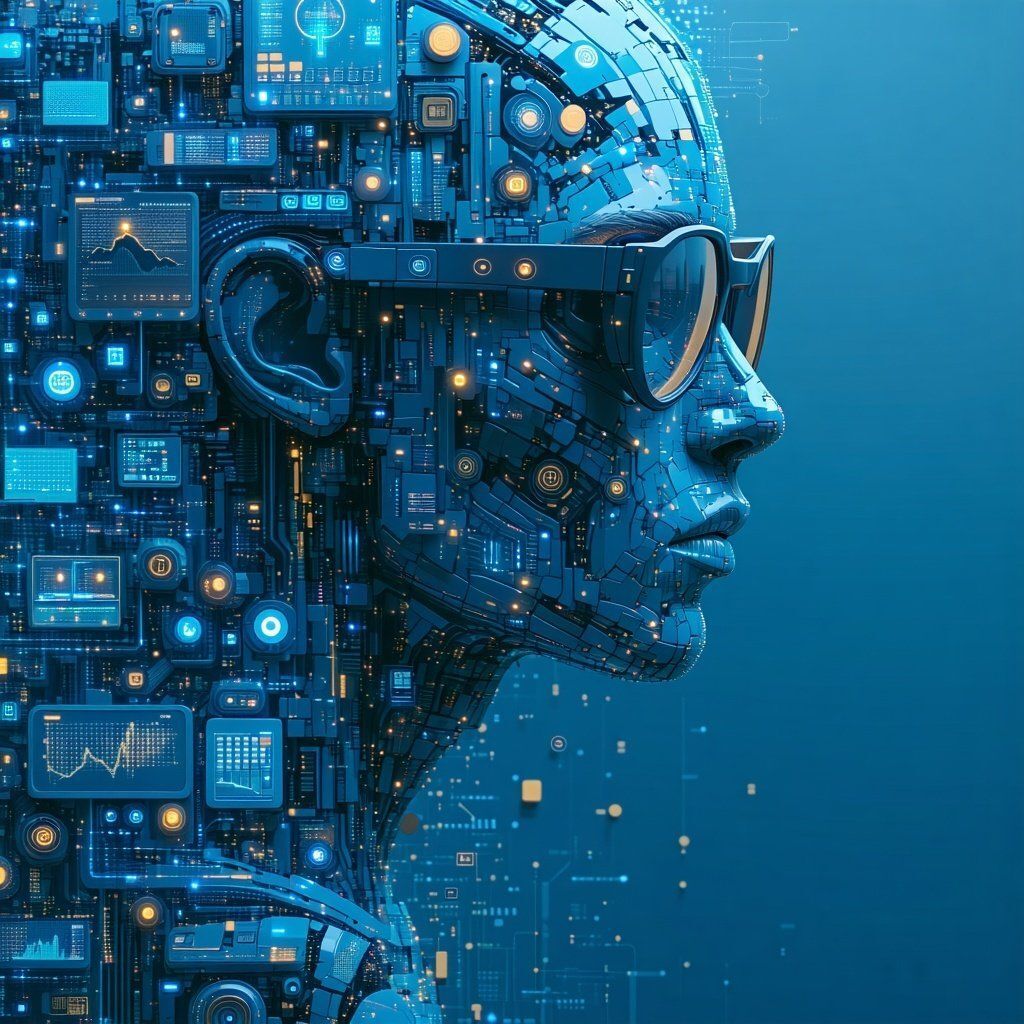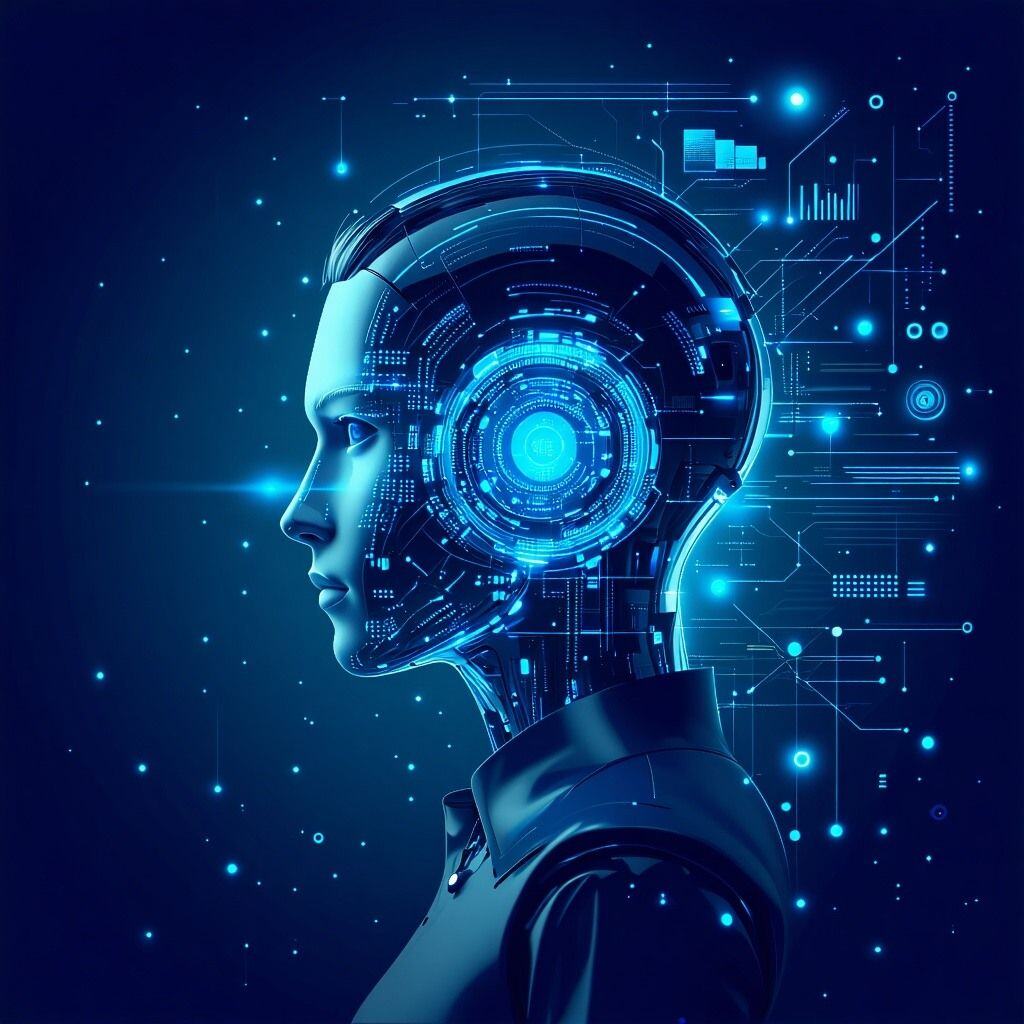What Are AI Agents and How Do They Work?
AI Agents: Transforming Technology and Creating New Career Opportunities

Artificial Intelligence (AI) has rapidly transformed the way we interact with technology, enabling machines to perform tasks that once required human intelligence. At the heart of this revolution lies the concept of AI agents—autonomous or semi-autonomous systems designed to perceive their environment, make decisions, and take actions to achieve specific goals. These AI agents range from virtual assistants like Siri and Alexa to autonomous vehicles, intelligent customer service bots, and even complex industrial robots.
But what exactly are AI agents, how do they work, and why are they so crucial in the evolving technology landscape? Moreover, how is the rise of AI agents shaping careers and jobs in the tech sector, particularly for AI engineers and data science professionals?
AI agents operate by continuously gathering data, analyzing it, and taking appropriate actions. For example, a virtual assistant listens to voice commands, interprets intent, and provides responses or executes tasks such as setting reminders or answering questions. Autonomous vehicles use a combination of sensors and AI to navigate roads safely by detecting obstacles and making driving decisions in real time.
AI Agents and Careers in AI
The growing reliance on AI agents has created a surge in demand for skilled professionals in the field. AI careers are expanding rapidly, offering diverse opportunities for those with expertise in AI development, deployment, and maintenance.
-
AI Engineers play a critical role in designing and building AI agents. They develop algorithms, integrate AI models into software systems, and ensure that agents perform reliably in real-world scenarios.
-
Data Scientists are essential in training AI agents, as they collect, preprocess, and analyze the large volumes of data required to teach machines how to learn and improve.
-
Key skills for AI professionals include proficiency in programming languages like Python and R, knowledge of machine learning frameworks (such as TensorFlow and PyTorch), and an understanding of AI ethics and data privacy.
Popular Examples of AI Agents
Some of the most well-known AI agents include:
-
Virtual Assistants: Siri, Alexa, Google Assistant—helping users manage daily tasks using voice commands.
-
Chatbots: Customer service bots that handle queries and support 24/7 without human intervention.
-
Autonomous Vehicles: Self-driving cars that interpret sensor data to navigate safely.
-
Recommendation Systems: AI agents that personalize content and product suggestions on platforms like Netflix and Amazon.
The Future of AI Agents and Job Market

As AI agents become more sophisticated and widespread, the demand for professionals who can develop, manage, and optimize these systems will continue to grow. Careers in AI and data science offer exciting prospects, high earning potential, and the chance to work on cutting-edge technologies shaping the future of industries ranging from healthcare to finance.
For anyone interested in AI careers, gaining expertise in AI agent development and data science is a smart investment, opening doors to impactful and rewarding roles in the technology sector.
What Are AI Agents?
An AI agent is a software system that observes its surroundings, processes the collected information, and takes actions to accomplish specific objectives. These agents are engineered to sense, reason, and respond—they gather data, analyze it, make informed decisions based on either predefined algorithms or learned patterns, and then execute appropriate actions.
Key Components of an AI Agent:
-
Perception – AI agents utilize sensors such as cameras, microphones, or various data inputs like text and images to perceive and interpret their environment.
-
Reasoning – After acquiring data, the AI agent applies techniques from computer science—such as machine learning algorithms, neural networks, or rule-based logic—to identify patterns and determine the best course of action.
-
Action – Based on the decision made, the AI agent performs an action, which could involve operating an actuator in physical devices like robots or generating responses in software-based systems like chatbots.
-
Learning – AI agents have the ability to enhance their effectiveness over time by learning from previous interactions and feedback, often through reinforcement learning.
For professionals exploring a career path in AI, understanding these components is crucial. Roles like data analysts play an important part in preparing and interpreting the data that AI agents rely on, while expertise in computer science provides the foundational knowledge to design and develop these intelligent systems.
How Do AI Agents Work?
-
Perception
• AI agents gather information from their surroundings using sensors or incoming data streams.
• Example: A self-driving vehicle collects input from cameras, LiDAR, and GPS systems. -
Interpretation and Reasoning
• After data collection, AI agents analyze and interpret the information using various advanced techniques, including:
- Machine Learning — Algorithms identify patterns and insights from data.
- Natural Language Processing (NLP) — Enables understanding and generation of human language.
- Computer Vision — Allows processing of images and videos to recognize objects or environments.
- Knowledge Graphs — Helps AI agents map and understand relationships between different concepts. -
Decision-Making
• Based on the interpreted data, AI agents determine the most appropriate actions using:
- Rule-Based Systems — Following a set of predefined instructions.
- Reinforcement Learning — Improving through trial and error by receiving feedback from the environment.
- Deep Learning — Leveraging neural networks to learn from large, complex datasets. -
Action
• Once a decision is reached, the AI agent executes the action:
- A chatbot generates a human-like response.
- A robotic arm manipulates or moves objects.
- An autonomous car adjusts its speed or steering to navigate safely. -
Feedback and Learning
• AI agents continuously enhance their performance by incorporating feedback loops:
- Outcomes, whether positive or negative, are logged for analysis.
- The system updates its internal models to make better decisions in the future.
For robotics engineers and deep learning engineers, mastering this cycle is essential, as they design and build the core systems that enable AI agents to perceive, think, and act effectively. Today, employers across various sectors, especially leading AI companies, are actively seeking professionals skilled in these areas to innovate and deploy intelligent agents that transform industries.
Types of AI Agents
AI agents can be classified based on their capabilities and learning approaches:
1. Simple Reflex Agents • Act based on a set of predefined rules. • No memory or learning ability. • Example: Thermostat adjusting room temperature based on current reading.
2. Model-Based Reflex Agents • Maintain an internal model of the world. • Use this model to handle more complex scenarios. • Example: Self-driving cars mapping the environment.
3. Goal-Based Agents • Act to achieve specific goals. • Use search and planning to determine the best actions. • Example: Chess-playing AI like AlphaZero.
4. Utility-Based Agents • Choose actions based on maximizing a utility function (measuring the desirability of outcomes). • Example: Recommendation engines suggesting content based on user behaviour.
5. Learning Agents • Improve performance over time through learning. • Use machine learning, reinforcement learning, and neural networks. • Example: ChatGPT improving responses based on user interactions. ⸻
You May Also Like
These Related Stories

Boost Retail Efficiency: How AI Automation Unblocks Your Workflow
.png)
Preparing Your Workforce for AI: Building Trust and Competence




No Comments Yet
Let us know what you think